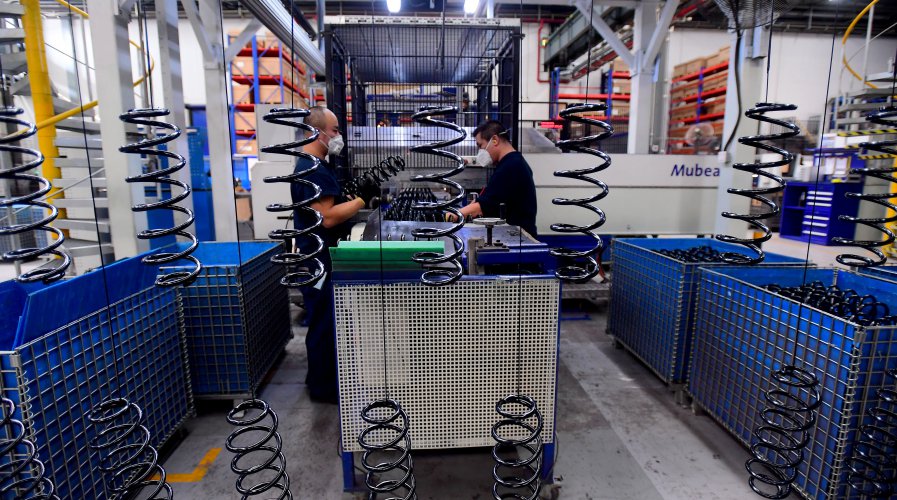
The auto industry has a complex supply chain ecosytem that could benefit from blockchain tech. Source: AFP
Tesla, BMW latest to tap blockchain to enhance supply chains
- BMW is tackling its supply chain complexity with the auto giant’s own blockchain project, PartChain
- Tesla & partners have seen the successful implementation of a unique blockchain pilot project in the shipping sector
More and more companies are turning to blockchain as a solution to enhance their supply chain processes, and last week saw two more illustrious brands announce such a maneuver.
Automotive titans BMW Group and Tesla Inc. join a growing list of established enterprises partnering with blockchain protocol Hyperledger Fabric. Hyperledger seems to be quickly becoming the most preferred blockchain platform in supply chain applications.
Given the complexity involved in their supply and delivery operations, it should come as little surprise why so many car companies are trying to leverage trusted blockchain technology.
Both companies are hoping to optimize their supply chain processes, and BMW has even gone the extra lengths of starting their own blockchain to be known as PartChain. The PartChain project aims to bring together all the disparate links in BMW’s supply chain in one decentralized, shared ledger that will be transparent to all partners.
Having successfully tested a blockchain pilot project on a smaller scale last year, BMW’s Purchasing and Supplier Network board member Andres Wendt believes PartChain could be the BMW Group’s answer to reliable, transparent, and immediate tracing of components “at the push of a button”.
“PartChain enables tamper-proof and consistently verifiable collection and transaction of data in our supply chain,” Wendt said in BMW’s PartChain press statement.
Over time, BMW hopes PartChain will help with the tracing and order-tracking of raw materials as well as component parts. “This move is designed to take the digitalization of purchasing at the BMW Group to the next level,” commented Wendt. “Our vision is to create an open platform that will allow data within supply chains to be exchanged and shared safely and anonymized across the industry.”
Tesla, meanwhile, is part of an ambitious pilot project in partnership with COSCO SHIPPING Lines and the Shanghai International Port Group (SIPG) to digitalize the traditionally paper-heavy shipping and transportation aspects of their supply chain.
The pilot initiative focused minimizing verification and sign-off steps involving the consignees and shipping agents using blockchain– providing a single, reliable source of waybill data which in turn enabled faster delivery order turnaround.
This process helped accelerate the process of verifying and picking up Tesla auto part cargo, leveraging Hyperledger Fabric with technical support by CargoSmart, a leading provider of shipping management technology.
This successful collaboration is opening doors for further cooperation between stakeholders in the shipping supply chain ecosystem, including shippers, terminal operators, and port authorities.
“The pilot is a key component of our journey towards paperless, trusted, and seamless trade processes at the Port of Shanghai, and it demonstrates the benefits for supply chain stakeholders around the world,” commented Henry Huang, Executive DGM of Operation & Business Department of SIPG.
“We look forward to extending the collaboration with more supply chain stakeholders to render extraordinary service to our community.”
Blockchain supply chain projects have so far yielded impressive results in terms of providing tamper-proof transparency across all links in tested given supply chain.
This enhanced accountability bodes well for future projects, including potential forays into other branches of advanced technology such as the Internet of Things (IoT), artificial intelligence (AI), and even 5G wireless applications.
READ MORE
- Ethical AI: The renewed importance of safeguarding data and customer privacy in Generative AI applications
- How Japan balances AI-driven opportunities with cybersecurity needs
- Deploying SASE: Benchmarking your approach
- Insurance everywhere all at once: the digital transformation of the APAC insurance industry
- Google parent Alphabet eyes HubSpot: A potential acquisition shaping the future of CRM


